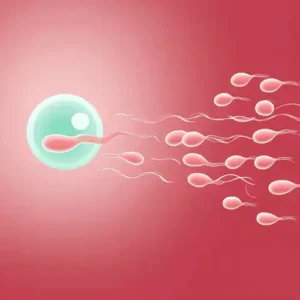You probably heard about the infamous old wives tales about having intercourse on specific days, eating a proper diet or even attempting to conceive in days with a full moon. Some are odd, however, a few of them are scientifically based and could probably increase your odds of conceiving.
In this article, we will bust certain misunderstandings about certain techniques and give you and your partner the best possible odds to prepare your body for a baby.
Understanding Your Cycle
The egg has a few days to be fertilised when it is finally released and floating around in your body. Carefully monitoring your monthly cycle is helpful in determining when is the best time to conceive and then making the most of that time (wink, wink).
Using a calendar is helpful in tracking your cycle. An ovulation kit is also useful as it tracks your hormones and temperature to determine how fertile you are at certain days in your monthly cycle. This tracking could also be done on apps such as Clue and iPeriod.
It can be valuable to use an ovulation prediction kit and app together to cross-check results and get the fullest insight into when you are most fertile each month. While apps rely on averages and patterns in past cycles, an ovulation test analyzes changing levels of key hormones to identify your personal fertility window in real-time.
Targeting the Ideal Day
Is the day of the week important in conception? There is heated discussion around this topic, even though the myths seem to have a different opinion. Some myths state that boys have a higher probability of being conceived on odd days while girls have better odds on even days and there is no scientific proof of this. However, you could still get pregnant even if you are on your period, in contrast to widespread assumptions.
Having intercourse regularly – every other day or at minimum 2-3 times a week – is shown to increase likelihood of conception significantly compared to timing everything to the exact ovulation date. Sperm can live 3-5 days while an egg only survives 24 hours, so having sperm waiting when ovulation occurs boosts your chances. While apps and ovulation kits narrow the window, regular intercourse covers all bases.
Eating A Healthy Diet For Conception
Having a fit and healthy body increases your chances of conceiving; therefore, it is important to eat a diet that is balanced and nutrient rich. “Fertility boosting” superfoods is a reality and worth a try. Consuming fruits and vegetables in healthy portions daily (especially green veggies that are high in B vitamin folate) will feed your body with all the proper nutrients. It is important to have whole grains and foods rich in iron and calcium. It is also useful to eat fish abundant in omega-3 as well as substituting plant-based for animal-based protein.
It is also wise for your male partner to eat a diet rich in vegetables, fruits, whole grains and lean protein as what he consumes affects sperm quality. Issues like low sperm count or motility are improved through proper nutrition and supplements like zinc, selenium and vitamin C.
Including Some Extra Foods to Your Diet
Adding folic acid to your diet has been shown scientifically to protect foetuses from developing spina bifida.
Eating more red meat boosts your odds of having a boy as per some old wives tales. Want a girl? eat more chocolate! However, not surprisingly, none of these have been scientifically proven.
While the gender swaying claims are questionable, antioxidants are strongly tied to fertility for both men and women. Berries, leafy greens, nuts and seeds boost antioxidants while processed foods and sugary snacks create excess inflammation and oxidative damage. Optimizing antioxidant intake improves egg and sperm health.
Staying Fit and Healthy
Your doctor has a duty to tell you to eat well and keep fit if you are trying to conceive. Therefore, it is important to minimise or eliminate the consumption of cigarettes, alcohol and maintain a good exercise routine. Having sufficient sleep is also vital. Actually, a romantic early night with your partner might be the perfect choice!
Along with nutrition, aim for a healthy BMI if you are overweight or underweight. Excess fat tissue in women can disrupt menstrual cycles and hormone balance. Being underweight also causes issues. Check with your GP to determine a weight target that supports conception plans if unsure.
Minimising Stress
It has not been scientifically proven that minimising stress increases your odds of getting pregnant. However, if you start to feel stressed, doing yoga, meditating or reading a good book will help to reduce stress. Chronic stress takes a major toll on the reproductive system for both genders by throwing key hormones out of balance. Prioritizing stress relief through yoga, meditation, massage, counseling, or other tools before trying to conceive may boost outcomes. If you have a history of anxiety, depression or trauma, get support to process this before pregnancy so you enter this new phase with centered calm rather than emotional turbulence. Your future child will benefit from your inner peace as well.
Photo Credit: “maternity – 16 weeks” (CC BY 2.0) by Vanilla and lace
Zoom Baby is a leading supplier of Pregnancy Tests and Ovulation Test Kits





